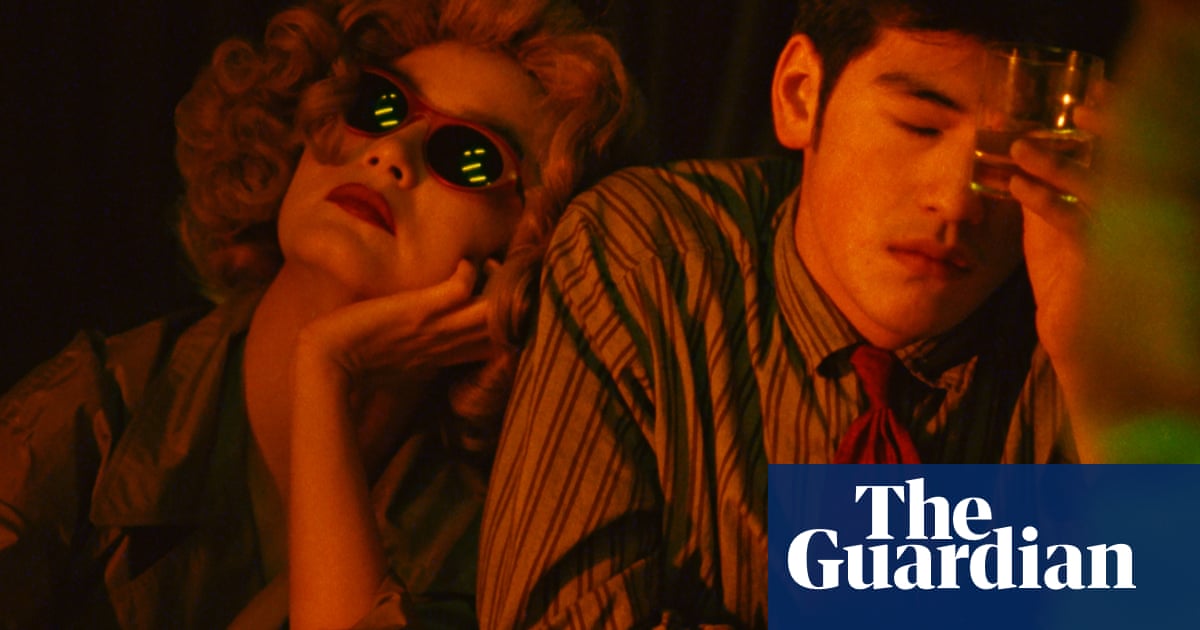Chinese auteurWong Kar-Waiis not a director you’d immediately seek out for a cosy feelgood experience. His films delve into loneliness, yearning and doomed love affairs, carried along by a melancholy undercurrent. Chungking Express, the story of two Hong Kong cops reeling from being dumped by their respective partners, doesn’t deviate from these obsessions of his but the quirky romantic comedy also manages to be his most joyous and uplifting offering.
The film has a playful energy and is brimming with offbeat humour. Tony Leung Chiu-wai and Takeshi Kaneshiro play the heartbroken policemen, both deep in denial over the end of their relationships. We watch them cope in very different ways with their heartache. Kaneshiro’s Cop 223 pines outside his ex’s flat, buys cans of pineapple because they were her favorite food and goes on jogs so his body has no water left for tears.
One night, he comes across Brigitte Lin’s mysterious femme fatale in a dimly lit bar. Decked out in a bouncy blonde wig, sunglasses and a trench coat, perpetually prepared for both sunshine and rain, she has problems of her own. Their encounter is told as a noir-style crime caper that looks at the seedy underbelly of Hong Kong complete with shootouts and runaway drug mules.
The film then moves on to Leung’s Cop 663, whose story combines light-hearted romance with a dash of screwball comedy. He mopes at home in his underwear after his girlfriend leaves him, giving objects around his flat a tough talking to for letting themselves go. Cantopop singer Faye Wong plays a music-loving fast-food worker, also named Faye, who develops a crush on him and tries to work her way into his heart by secretly cleaning his flat. It’s an act that is less domestic servitude and more a cunning plot to change someone on a cellular level without them realising.
If that all sounds too zany and affected, it’s not. Chungking Express somehow manages to be both gently whimsical and beautifully profound while mining plenty of laughs even in the desolate gloom of breakup despair. All four leads are unbelievably charismatic, and watching the two couples dance tentatively around each other is an unadulterated delight.
I was 16 when I first saw Chungking Express and even though I grew up in Surrey, there was something about its depiction of alienation and not quite belonging in the big city that resonated with me. Perhaps because I also felt the same way as a second-generation Chinese immigrant; my family was one of the few ethnic minorities living on a very white council estate. I would borrow arthouse films from my local library, dreaming of a more exciting life.
My parents were big fans of mainstream Chinese blockbusters, martial arts epics and triad crime films.When they brought home a VHS copy of Chungking Express, they had no idea of the impact it would have on me. It wasn’t so much a breath of fresh air as a neon-hued tornado obliterating everything I knew about Hong Kong cinema.
Over the years, I’ve rewatched all of Wong’s films many times. I am just as smitten by his romantic masterpiece In the Mood for Love and the moody drama Days of Being Wild, but Chungking Express is the one I return to the most. It is as effervescent as the Coca-Cola that is blatantly plugged in the film and as exhilarating as the Mamas & the Papas’ song California Dreamin’ that Faye plays on repeat.
It never fails to cheer me up. Each and every time I’m ridiculously charmed by the sight of Leung asking a giant white teddy bear if he’s been in a fight, Faye dancing behind the snack bar counter brandishing condiments like glow sticks, and Kaneshiro trying to hit on women in a bar by awkwardly asking them if they like pineapple. The film is just so incredibly sweet, so astute about our interior lives, and so stylish in a way that still feels fresh and exciting even years later. Despite the sadness at the heart of Chungking Express, watching it feels like basking in sunlight.
One of my favourite lines from the film comes from Cop 223, touched by a surprise message, as he speculates: “If memories could be canned, would they also have expiry dates? If so, I hope they last for centuries.” My love for Chungking Express will never expire. Unlike other, more straightforward feelgood movies, it doesn’t shy away from depicting the rough edges of urban life and how it can leave you feeling unmoored. But it shows how there’s always a chance to make a meaningful connection, hope emerging like a rainbow after the rain, scattering the grey clouds from the sky.
Chungking Express is available on Max and The Criterion Channel in the US and to rent digitally in the UK and Australia
